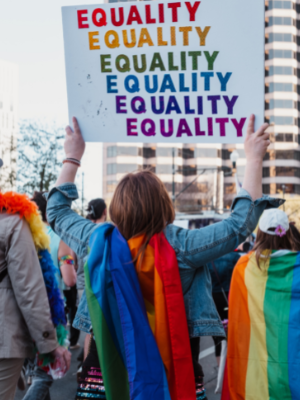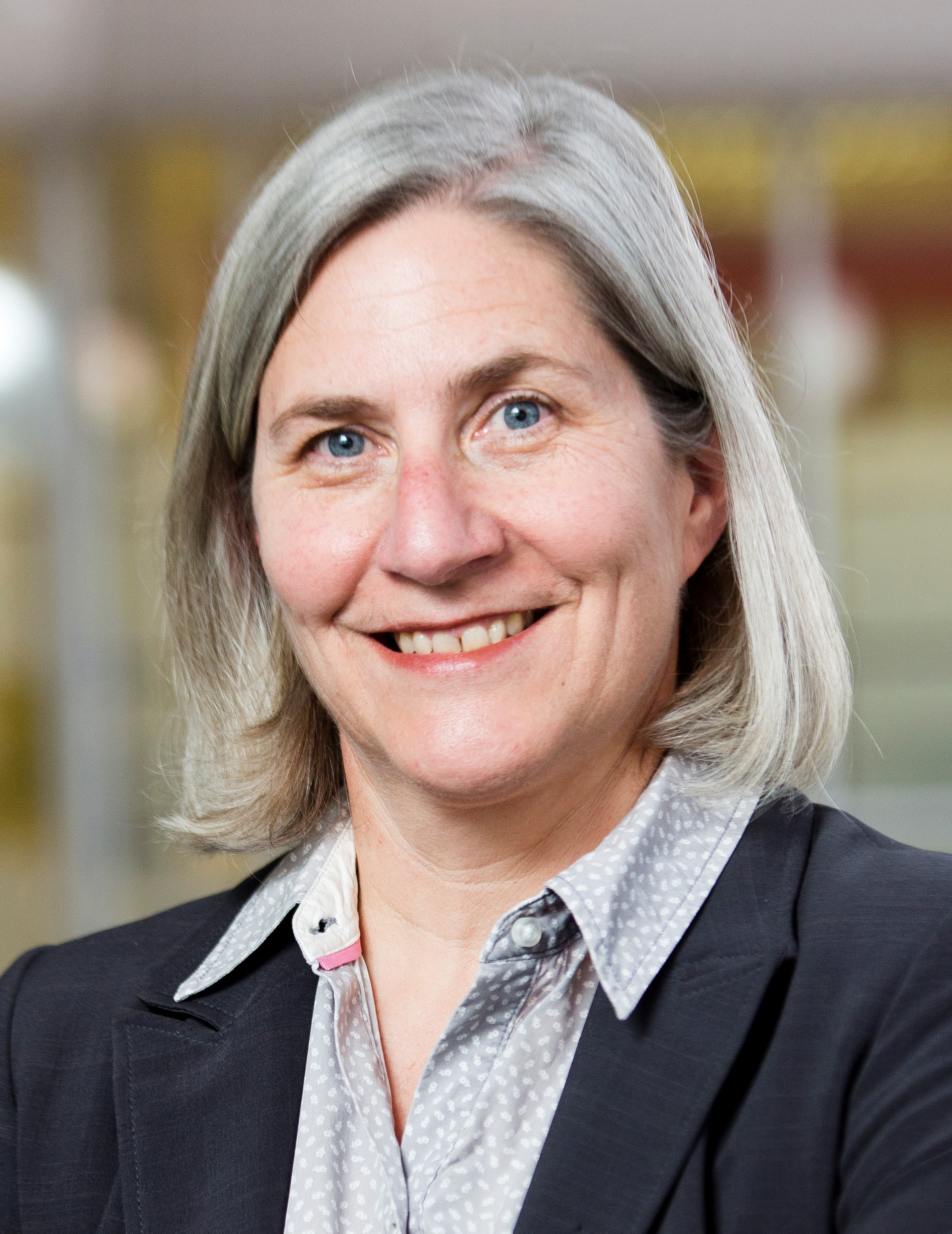 LGBTQ+ is a form of invisible diversity that is both growing and significantly changing, especially among younger generations. Yet, many LGBTQ+ employees continue to report a lack of real inclusion and safety in the workplace.
LGBTQ+ is a form of invisible diversity that is both growing and significantly changing, especially among younger generations. Yet, many LGBTQ+ employees continue to report a lack of real inclusion and safety in the workplace.
During Pride Month, let’s remember why valuing LGBTQ+ employees is not just about a month of celebration, adapted logos and rainbow flags – but about a deep commitment to building LGBTQ+ inclusive and safe workplaces that allow all individuals to contribute and thrive every single day.
Underrepresentation for LGBTQ+ From Entry to Leadership
According to Gallup in 2021, 7.1% of the U.S. identifies as LGBTQ+ (doubling since 2012) and 21% of Gen Z do (twice the proportion of millennials). LGBTQ+ identification is increasing across major racial and ethnic groups – giving rise to more diverse, intersectional identities.
Yet under-representation in the workplace for LGBTQ+ groups begins at entry level. McKinsey found that LGBTQ+ women are underrepresented by more than half, even at entry level. Meanwhile at the top, only .5% of the board seats in the Fortune 500 are held by openly LGBTQ+ directors and only a few Fortune 500 CEOs are openly gay, including one woman. One transgender woman leads a Fortune 1000 company. The lack of visible LGBTQ+ executive leadership limits visible role models for younger talent.
LGBTQ+ men (80%) are more likely to be out than LGBTQ+ women (58%). Senior LGBTQ+ leaders (80%) are more out than junior employees (32%), even though their peers are more accepting and demand inclusivity in the workplace.
Globally, the World Economic Forum is advocating for LGBTQ+ visibilty: more LGBTQ+ representation in business and media that tells more diverse and inclusive stories of LGBTQ+ individuals, to advance both equality and acceptance. LGBTQ+ community members report feeling least authentically represented in media depictions. And while 63% of non-LGBTQ+ people perceive the “community” as one collective group with similar needs, the reality of a changing LGBTQ+ culture has never been further away.
While LGBTQ+ acceptance has grown globally since 1981, an unprecedented number of anti-LGBTQ+ bills are proposed in U.S. state legislatures, 71 countries still criminalize consensual same-sex sexual activity, 15 countries criminalize the gender identity and/or expression of transgender people and 11 countries deem consensual same-sex relations punishable by death.
LGBTQ+ Experiences In the Workplace
A LinkedIn survey of LBGTQ professionals found 24% were not open about their identity at work and 26% feared they’d be treated differently by coworkers, echoing McKinsey’s findings that one in four LGBTQ+ employees are not out at work.
McKinsey research found that half of out LGBTQ+ individuals have to come out at least once a week: especially challenging for women, junior employees, and people outside Europe and North America. BCG found 40% of U.S. LGBTQ employees are closeted at work and that 75% have experienced negative day-to-day workplace interactions related to their identity.
Yet being out has helped many to access more of their potential. According to LinkedIn, LGBTQ+ individuals report being open at work helps them connect with others for support and build better relationships. According to McKinsey, individuals experience greater well-being and are more able to focus on work. Those who are out are far less likely to plan to leave their current employer. But in absence of strong cultures of inclusion, many are deterred or facing headwinds.
According to CIPD research on LGBTQ+ inclusion, LGB+ employees (40%) and trans employees (55%) experience more workplace conflict and harassment than heterosexual employees (29%) and feel less psychological safety. LinkedIn found 31% reported facing discrimination or microaggressions at work.
Williams Institute at UCLA School of Law also found that nearly half (46%) of LGBT workers have experienced unfair treatment at work, such as harassment, dismissal or hiring discrimination based on their LGBT status. Nearly one-fourth have experienced discrimination when applying for jobs, and even more so for transgender workers.
67% of LGBT workers have heard slurs, jokes and negative comments about LGBT people. Half are not out to their supervisors. While 40% of LGBT cis-gender employees are likely to adopt behaviors to “cover,” nearly 60% of transgender employees are. Trans individuals are twice as likely to hear sexist jokes about people of their gender, three times more likely to feel they can’t talk about life outside of work, and think more often about leaving.
When it comes to advancing, McKinsey reports that many LGBTQ+ employees believe they have to outperform non-LGBTQ+ colleagues to gain recognition and 40% of LGBTQ+ women feel they need to provide extra evidence of their competence. Compared to 2/3 of non-LGBTQ+ employees, only half of LGBTQ+ respondents saw people like themselves in management positions at their organizations. Less than 1 in 4 of have an LGBTQ+ sponsor, even though senior LGBTQ+ leaders are twice as likely as straight and cis-gender peers to credit sponsors for their own career growth.
LGBTQ+ employees earn 90% on every $1 and transgender employees make 32% less per year than their cisgender peers. 1 in 3 LGBTQ+ U.S. employees feel discrimination has impacted their promotion or salary levels.
And a study published in the Journal of Business and Psychology found that leaders with same-sex sexual orientation are perceived to be less effective and receive less follower conformity than heterosexual leaders, regardless of gender presentation or biological gender, especially among male followers (women followers were more supportive). The researchers note that extra care must be taken to ensure same-sex sexual orientation leaders are evaluated fairly in performance reviews.
The Remote Workplace Has Mixed Impacts on LGBTQ+ Inclusion
In a global study, McKinsey found that LGBTQ+ employees in the remote workplace were 1.4 times more likely (twice as likely in Asia) than straight and cis-gender peers to report acute challenges with workload increase and fair performance reviews. They struggled more from a loss of workplace connectivity and belonging. Two of three LGBTQ+ employees reported acute or moderate challenges with mental health. Additionally, a survey of remote workers in tech reported that online harassment and hostility went up for LGBTQ workers during the pandemic.
McKinsey researchers noted: “The allyship found in social and work settings is an important source of belonging among many in the LBGTQ+ community.”
On the other hand, some LGBTQ+ employees found remote work to be a ‘game changer for inclusion.’ With remote work, employees can remain in a place where they have a supportive community and work for an employer in a different location. Some find the remote office reduces the pressure of office interactions and helps avoid appearance-based comments. It also makes it straight-forward to introduce pronouns.
The Cost for Lacking LGBTQ+ Inclusion
It’s been estimated that the US economy could save $9 billion annually if organizations had more effective inclusion policies for LGBTQ+ employees.
A recent argument in Forbes demonstrated that a lack of LGBTQ+ inclusion is costing companies. If an LGBTQ+ employee – either out or closeted – spends even 15 minutes of their day either explaining or evading uncomfortable situations related to their identity, it amounts to 65 hours a year, or over $1500 per LGBTQ+ employee based on median income, to compensate for a workplace that isn’t LGBTQ+ inclusive: which sums to a quarter million for a company with 10,000 employees or $2 billion for U.S. employers, annually.
“Add it all up, and employers are wasting a huge amount of money by not creating spaces where LGBTQ+ folks can bring their whole selves to work, do their jobs and be successful,” writes Michael Bach.
Meanwhile, many studies confirm that when employees are within a genuinely inclusive organizational culture, it benefits individuals, teams, organizations and the bottom line.
LGBTQ+ Inclusion Is a Cultural Commitment
While Pride Month is a celebration that lasts for a month, a LGBTQ+ employee needs to feel included – and protected from homophobia and transphobia – every day, and regardless if they choose to share their identity in the workplace. Because LGBTQ+ individuals are less visible than other underrepresented groups, organizations must go the extra mile.
Inclusion is not performative but about mitigating biases, creating authentic belonging, valuing LGBTQ+ voices and providing equal opportunity to contribute and fulfill potential. When it comes to LGBTQ+ inclusion, dedicated corporations advocate for legislative change and oppose legislative discrimination.
At a DEI commitment level, LGBTQ+ inclusion must be a specific priority and companies must seek to understand how individuals who are LGBTQ+ experience the office differently to other groups. It means visible leadership commitment to inclusion and leadership representation, and activating sponsorship of LGBTQ+ talent.
At an advocacy level, it means leveraging the corporate voice to oppose discriminatory legislation that targets the LGBTQ+ community and even leading the charge as powerful allies on LGBTQ+ rights.
At a policy and processes level, inclusion means making sure policies are LGBTQ+ inclusive such as domestic-partner benefit and trans-inclusive healthcare coverage as well as clear about non-discrimination on gender, gender identity, and sexual orientation regardless of whether employees are “out”; mitigating assumptions and bias in hiring, reviews, pay and promotions; adapting technological interfaces to be inclusive (such as freedom to input chosen names in data fields); providing gender-neutral restrooms; and protecting employees from bullying whether in-office or online.
At the level of everyday cultural interactions, it means cultivating compassion and awareness among employees; using inclusive and gender-neutral language in the workplace; actively encouraging allyship, empowering better allyship and making allyship visible; investing in LGBTQ+ networks and rewarding contributions; setting aside safe spaces for voices to come forth; normalizing the adding of pronouns on LinkedIn and social media profiles; recognizing that identifies are fluent and complex and letting people tell you how they identify on their terms; celebrating LGBTQ+ calendar events and days; and most of all creating a culture of learning, openness and psychological safety.
It’s the organizations and leaders that champion not a month, but a sustained and iterative commitment to LGBTQ+ inclusion, that will make a real difference to LGBTQ+ lives.
By Aimee Hansen


